Leap to winners | Leap to methodology
Past the thrill: turning promise into outcomes
The AI explosion has ramped up the strain on the world’s high insurtechs to ship and push the boundaries even additional.
The businesses assembly these exacting calls for are acknowledged by Insurance coverage Enterprise because the 5-Star Expertise and Software program Suppliers 2025 and had been decided after the worldwide broking community nominated and ranked their standout performers.
Their options drive enterprise worth, from quicker claims processing to smarter underwriting, allow digital distribution fashions, and supply insurer-specific understanding, whereas introducing AI the place it’s handiest.
“Though AI is actually new to insurance coverage, boards and C-suites have excessive expectations to take the lead,” says Alan Demers, president of InsurTech Consulting. “These expectations are buoyed with warning for the chances of what might go flawed. It’s a real mixture of concern and thrilling alternatives.”
Proving the purpose, greater than 60 p.c of all insurtech offers in early 2025 concerned AI, reflecting its speedy rise in underwriting, claims, customer support, and danger modelling, in accordance with the Q1 2025 International InsurTech Report.
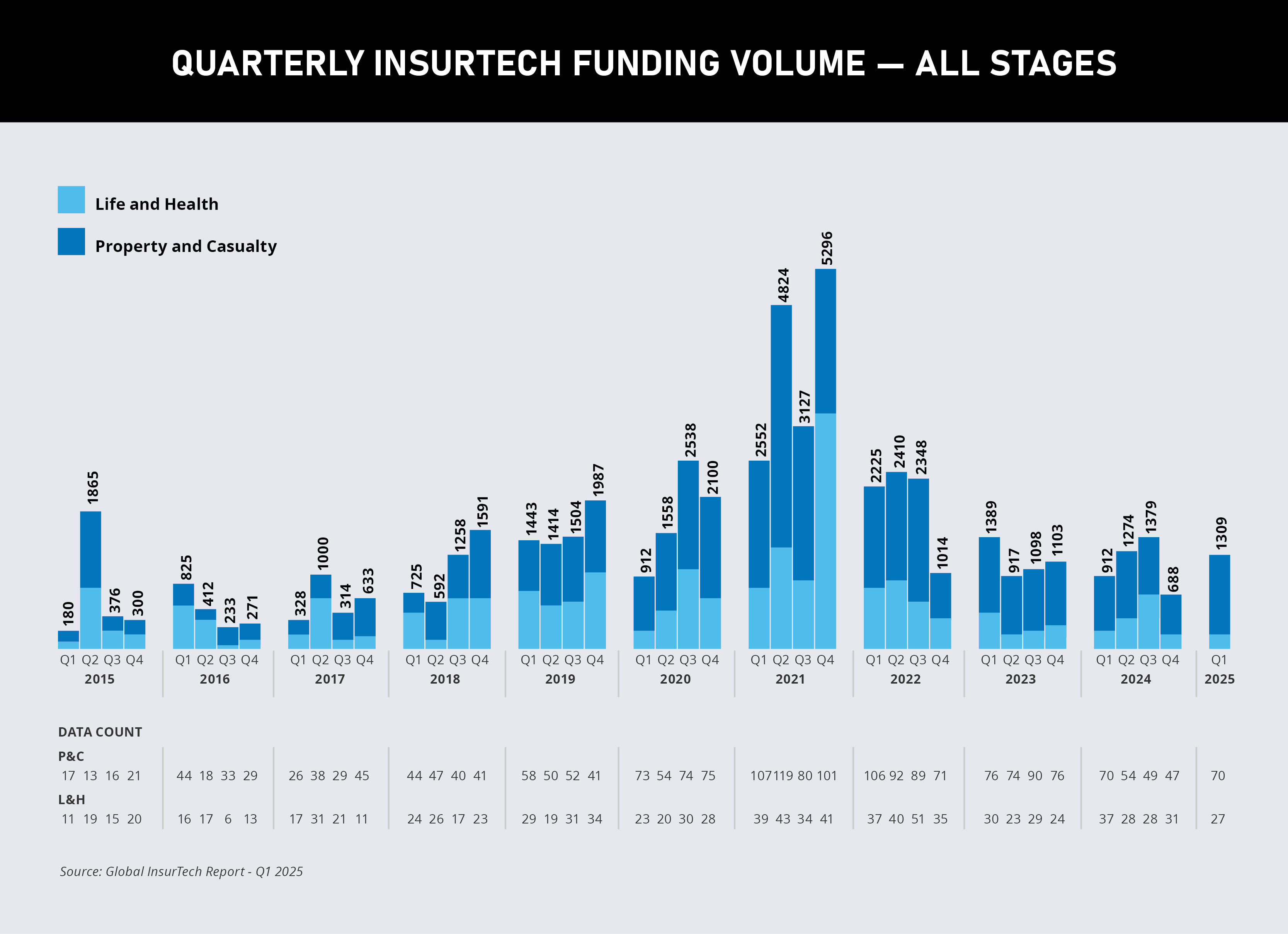
Different key information factors reinforce the momentum:
-
International insurtech funding surged 90.2 p.c quarter over quarter, reaching US$1.31 billion, the very best degree since late 2022
-
Three mega-rounds over US$100 million had been recorded for P&C-focused companies: Quantexa (US$175 million), Overtly (US$123 million), and Instabase (US$100 million)
-
AI-led insurtechs raised a mixed US$710.86 million throughout 60 offers, with a mean dimension of almost US$ 14 million
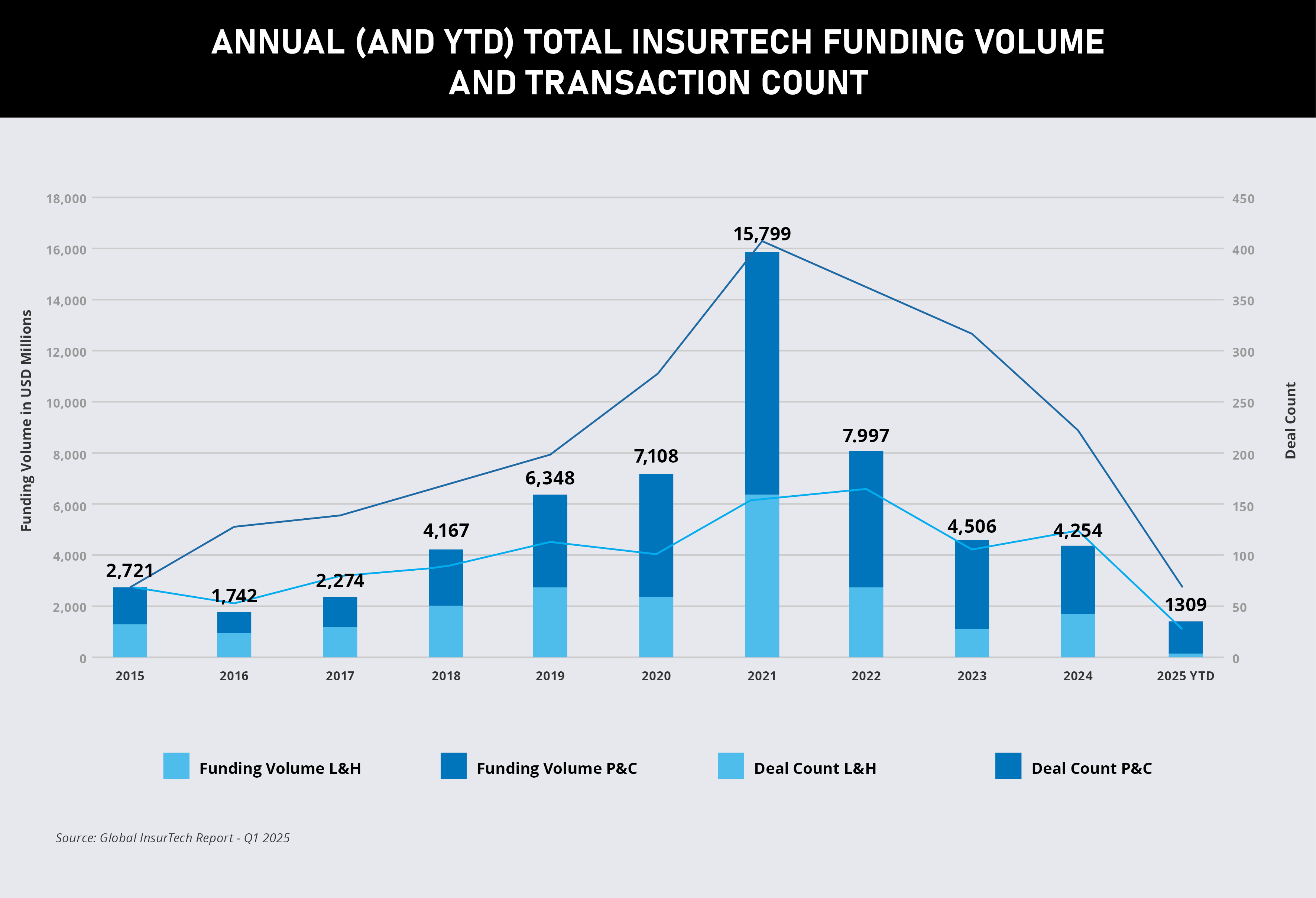
For a lot of insurers, the hype has outpaced sensible understanding, however that’s altering. As George Shelton, head of venturing at Alchemy Crew Ventures, explains, “AI, and particularly generative AI, has raised the bar when it comes to what we count on from insurance coverage software program.”
He describes the sector as deeply complicated and data-dependent, having traditionally lagged behind different industries in innovation. That sluggish tempo now leaves room to maneuver.
“There’s loads of low-hanging fruit,” Shelton says. “However we’re so much much less forgiving of AI than we’re of our human counterparts, particularly given the wide range of so-called options flooding the market.”
And he additionally explains that the highest insurtechs don’t lose sight of the top aim. “Insurers are grappling with an ideal storm of serious challenges, lots of that are more and more complicated and probably very disruptive,” Shelton says. “The aim is to assist insurers change into extra agile, resilient, and customer-centric.”
Separating worth from advertising spin
AI has change into the defining speaking level of the tech area, however insurance coverage leaders are cautious of inflated guarantees and one-size-fits-all platforms.
“Practically each resolution supplier has ‘AI’ of their URL, someplace on their web sites and advertising collateral,” says Demers. “This makes it tough to evaluate and distinguish amongst gamers, by no means thoughts attributing actual cost-benefit evaluation.”
He warns that whereas generative and agentic AI are displaying potential, many carriers are nonetheless experimenting and struggling to seek out options tailor-made to their enterprise wants.
Demers factors to particular progress in “co-pilot or agent use circumstances,” equivalent to claims reserving. Shelton reinforces the purpose: “AI is a game-changer, however solely when carried out thoughtfully.”
The worth lies not within the tech itself however in the way it’s educated and deployed. “The true worth comes from tailor-made, insurance-specific AI fashions which can be rigorously examined for equity and compliance, and which can be totally explainable and understood by these utilizing them,” Shelton says.
Actual progress is being made with measurable enhancements in:
“Expectations have soared with the emergence of generative AI,” Demers provides. “The bar is raised excessive for brand spanking new innovation, breakthroughs on effectivity and value benefits, in addition to higher danger choice and pricing.”
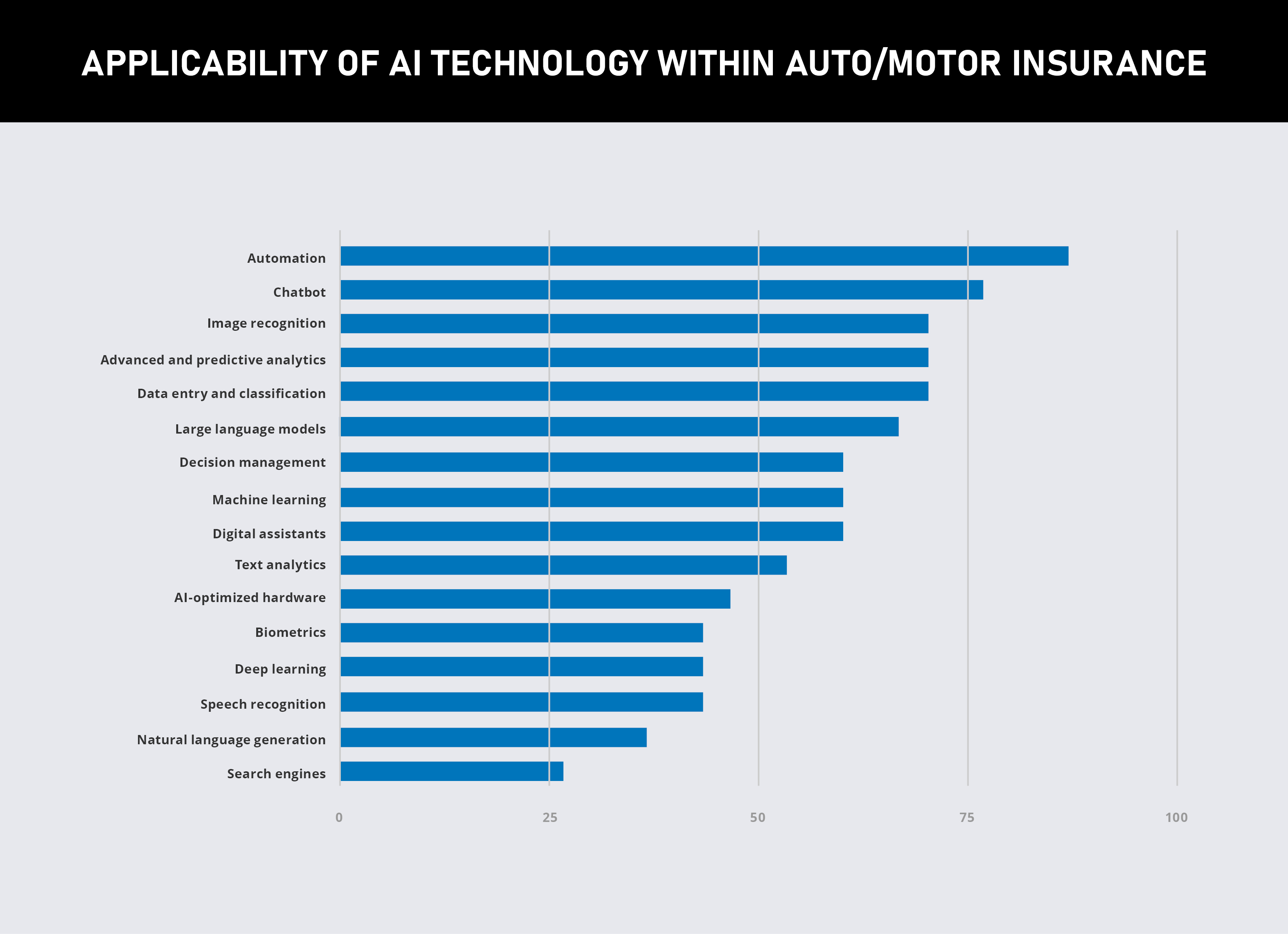
What units the highest insurtech corporations aside
The worldwide market is crowded with distributors providing transformation. Nonetheless, separating worth from business noise requires operational fluency and a deep understanding of how insurance coverage corporations function.
4 key patterns emerged throughout the highest insurtech corporations primarily based on brokers’ perception:
-
AI expectations are rising quick. Generative AI has change into a strategic challenge. However off-the-shelf fashions are shedding floor to purpose-built, insurance-specific options.
-
Implementation is now a credibility check. If a system can’t combine easily with legacy infrastructure or ship worth on day one, it doesn’t make it by procurement.
-
Customization is anticipated. Off-the-shelf software program is being changed by versatile platforms that adapt to area of interest product fashions and market-specific methods.
-
Outcomes are all the things. Consumers are expecting actual influence, decreased loss ratios, quicker processing, and higher CX. Options alone now not shut the deal.
For Demers, who beforehand led main claims operations, endurance, area experience, and measurable outcomes stay the hallmarks of top-tier suppliers.
“Prime suppliers typically carry attendant scale, reliability, and are mature sufficient to carry insurance coverage acumen as an added dimension,” he says. “The perfect tends to offer wealthy benchmarking info as carriers always evaluate efficiency given the extremely aggressive market.”
Whereas established gamers dominate by stability and scale, newer entrants are additionally gaining floor. Demers provides, “New entrants typically achieve traction by providing the most recent in know-how and revolutionary influences to set themselves aside.”
Innovation chief Shelton echoes this sentiment. “Nice companions make working with them a no brainer. As effectivity and profitability pressures mount for insurers, the business is ripe with alternative. Nonetheless, potential companions should be capable to ship measurable worth, on insurer’s phrases, from day one, in a versatile, responsive, and collaborative manner.”
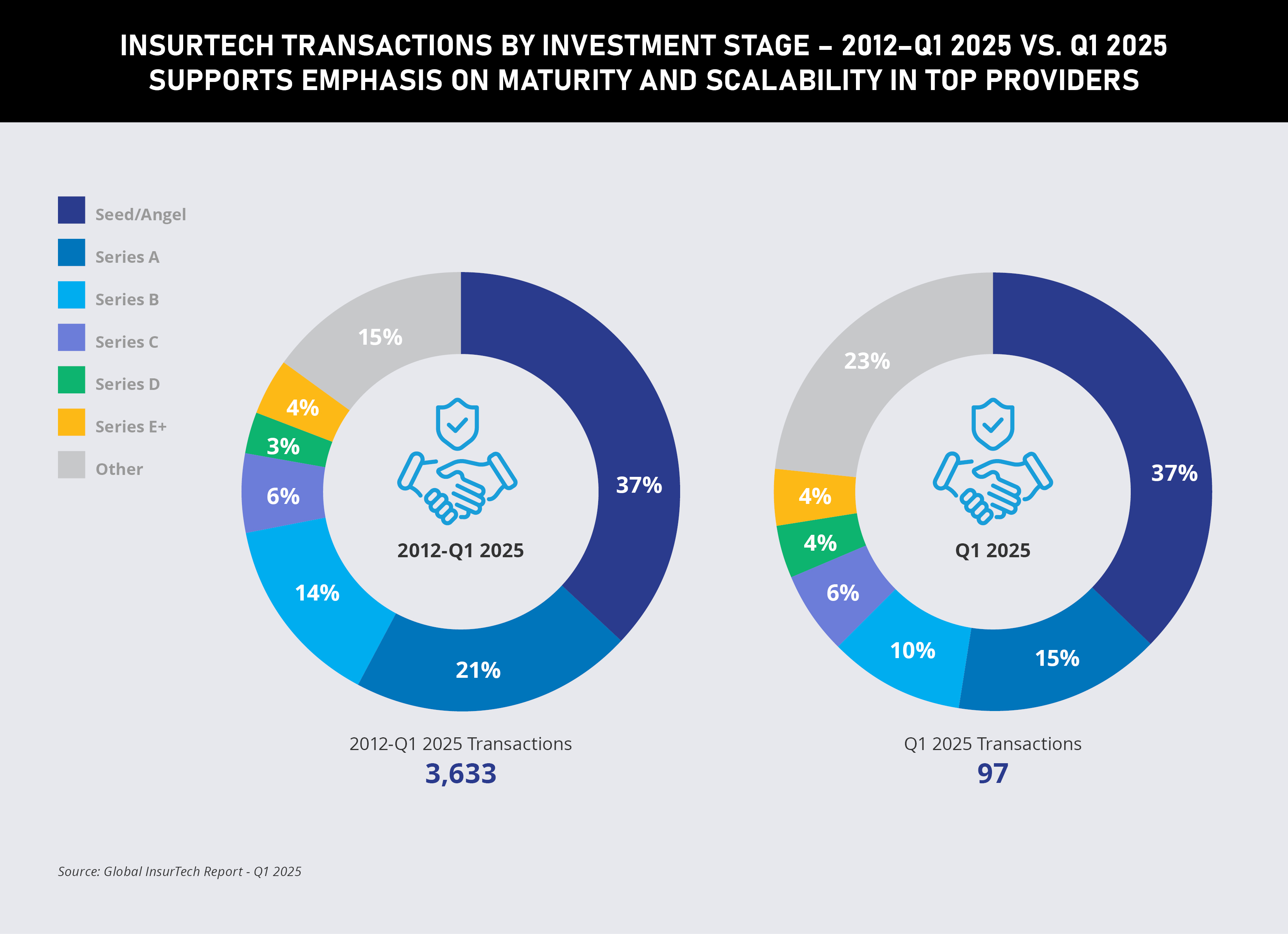
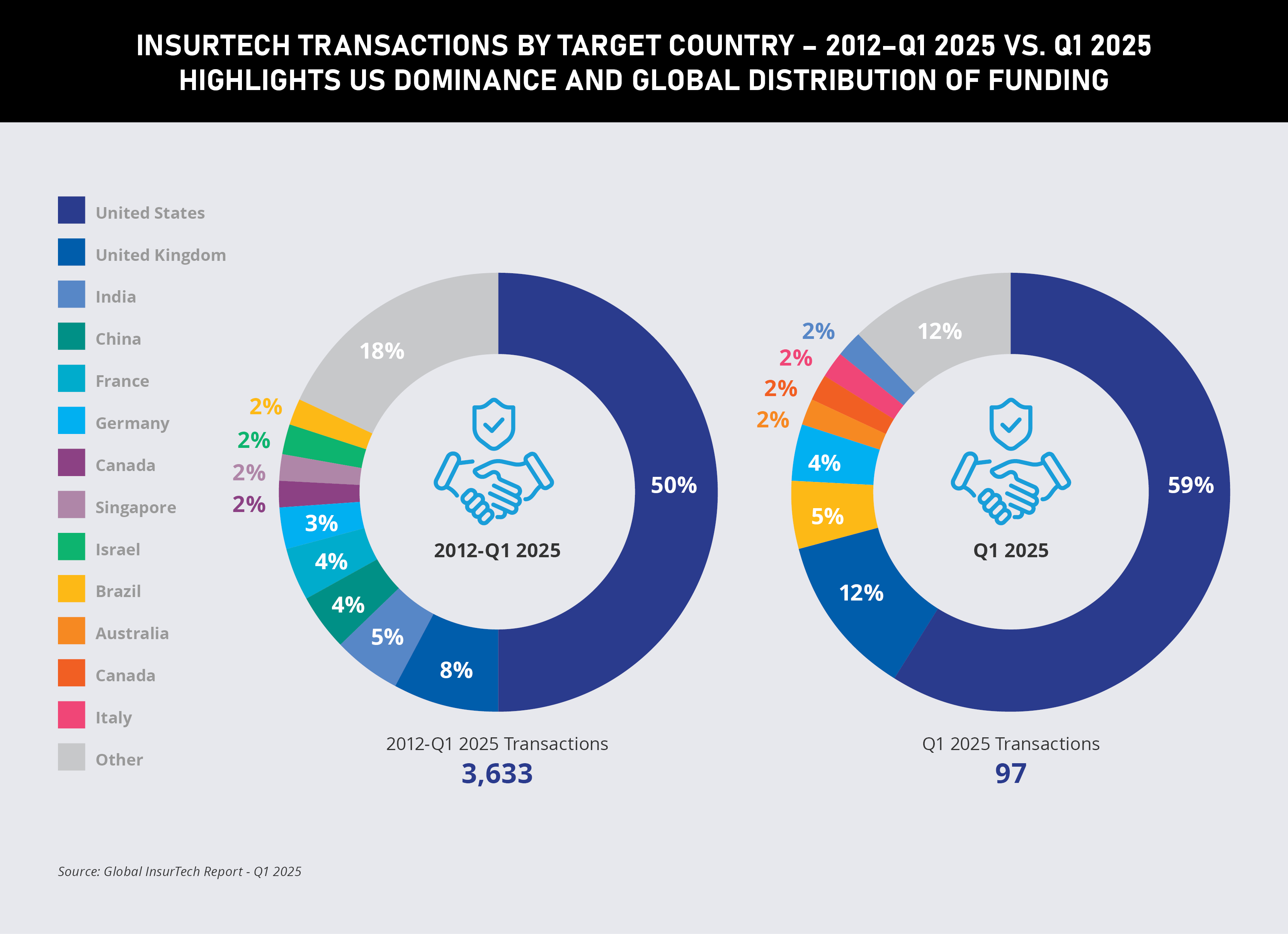
Tackling legacy drag and danger that received’t wait
The insurance coverage business is below strain from growing older tech stacks, new danger varieties, evolving buyer expectations, and an more and more complicated regulatory surroundings.
Expertise companions should go effectively past implementation and are anticipated to carry options to systemic challenges whereas minimizing disruptions to core operations.
Demers identifies three vital areas the place the suitable tech makes a distinction:
-
profitability pressures in burdened strains like householders and industrial auto
-
fragmented techniques and costly tech stacks that hinder effectivity
-
the push to undertake AI responsibly, particularly round information high quality, privateness, and enterprise relevance
Shelton gives a complementary listing of challenges that insurers count on their distributors to handle:
-
rising complexity of danger, from cyber to local weather
-
rising regulatory and information privateness necessities that demand greater than box-checking
-
operational inefficiencies on account of layered legacy infrastructure
-
shoppers demanding personalization and digital ease, at the same time as they reduce on spending
-
inner strain to launch new merchandise and distribution fashions with out increasing overhead
“From a strategic standpoint, tech and software program suppliers ought to acknowledge that their providers can lengthen past fixing a technological downside towards serving to their shoppers to actively innovate, enhance, and develop new services and products, primarily based on good suggestions,” Shelton says.
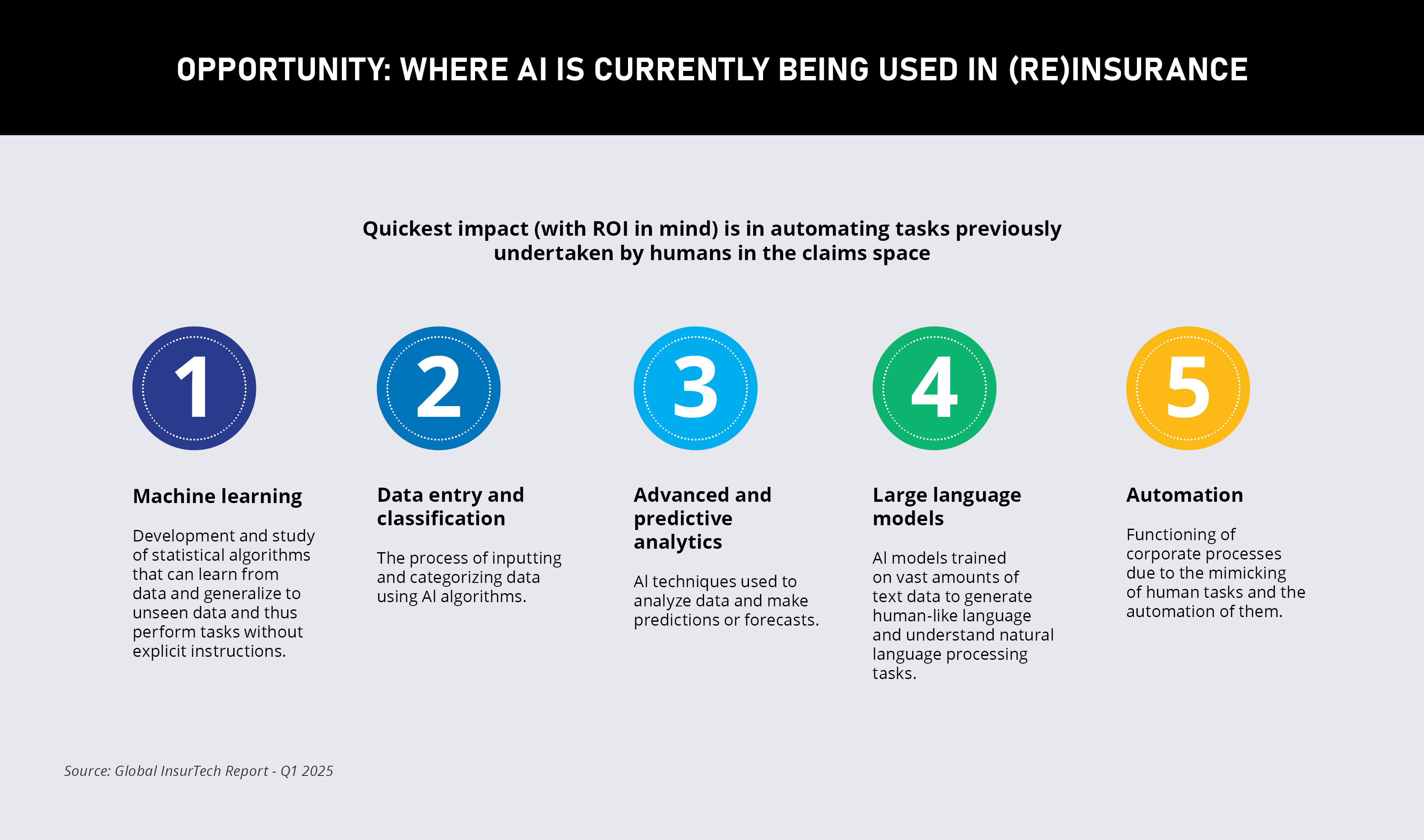
Measuring what issues:
the ROI converstion
In an area crowded with demos and advertising noise, insurance coverage leaders don’t wish to purchase guarantees. Effectivity beneficial properties are nonetheless desk stakes, however they’re now not the entire story, Demers remarks.
“At current, income development might be No. 1, as P&C has restored profitability and underwriting appetites are rising shortly,” he says. “Loss ratios can be an in depth second. Resolution-makers wish to see advantages in all, together with buyer satisfaction.”
Shelton agrees that evaluating ROI in insurance coverage tech is essential and should be a mix of quantitative and qualitative information.
“The magic numbers of loss ratio and expense ratio will all the time be high of a traditional insurer’s thoughts,” Shelton says.
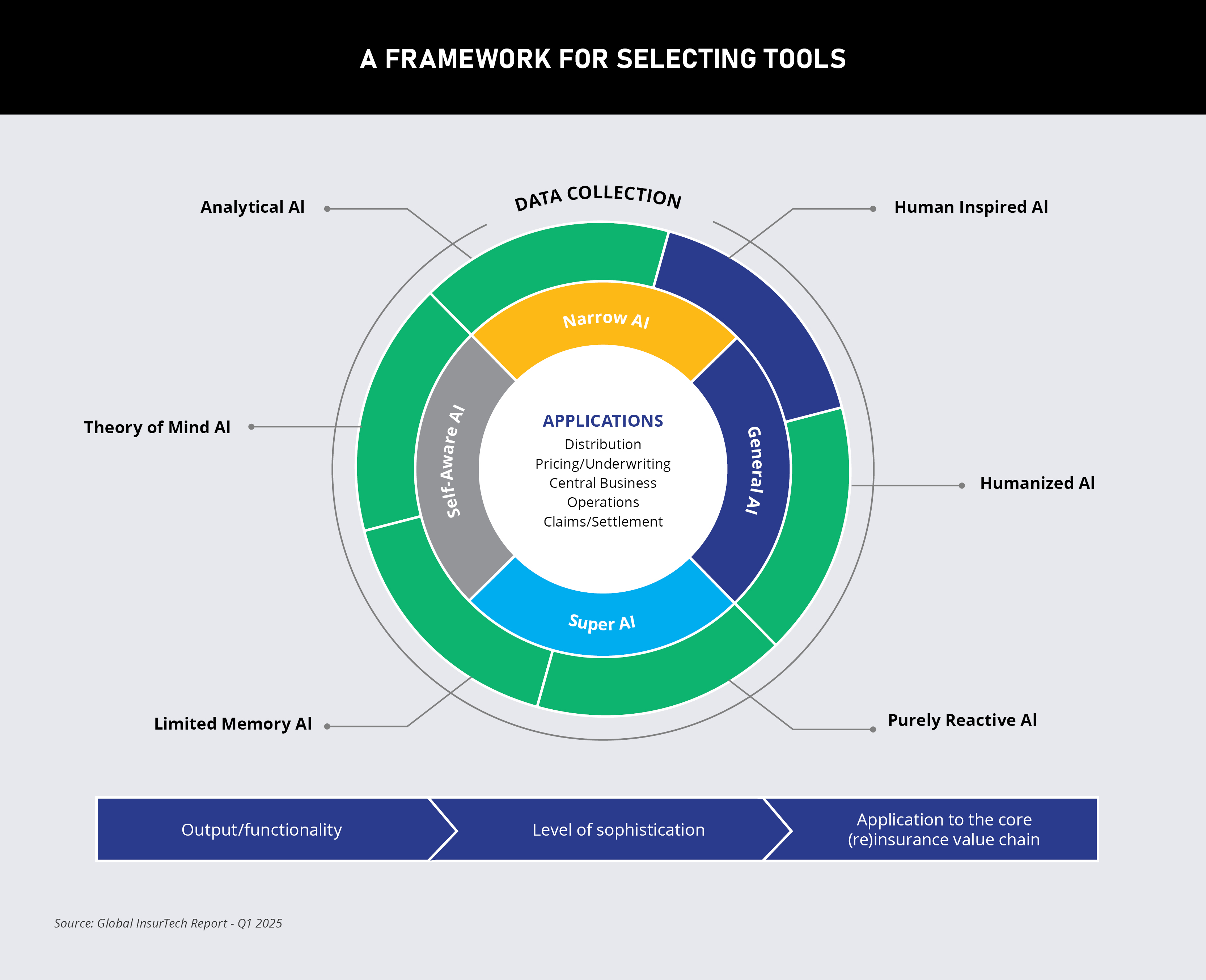
Knowledge evaluation of what the world’s brokers need
Instruments that work shortly, combine seamlessly, and ship measurable worth below present enterprise circumstances are the highest necessities.
A comparability of IB’s world scores from 2023 to 2025 additionally uncovers a collection of developments:
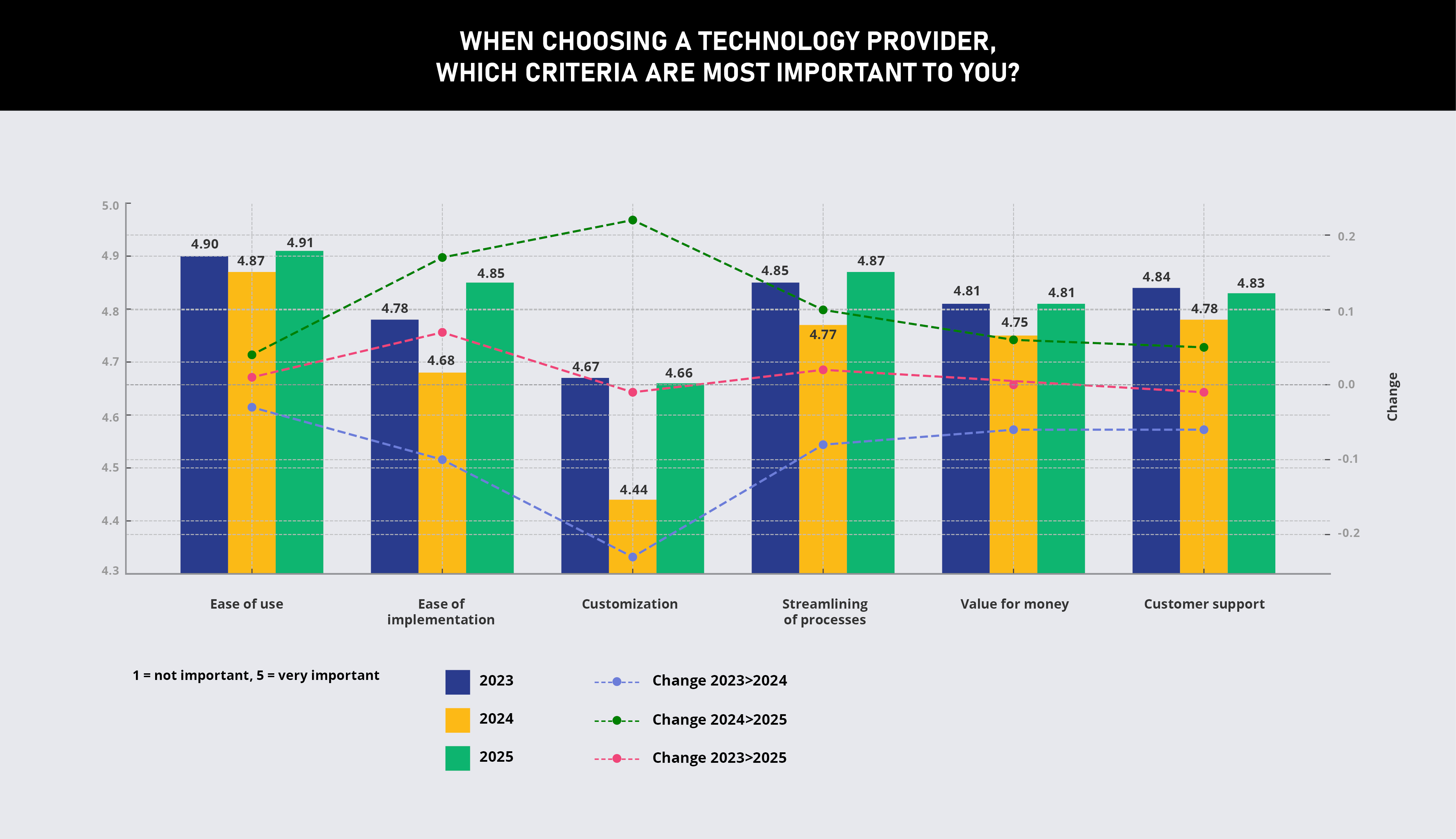
Key patterns and insights
-
2024 dip: All standards skilled a dip in 2024, suggesting both increased expectations or market challenges.
-
2025 restoration: All standards rebounded in 2025, with some reaching their highest ranges, indicating enhancements in know-how choices or higher alignment with dealer wants.
-
Ease of use dominance: This stays an important issue, highlighting the need for intuitive, user-friendly know-how.
-
Customization volatility: The sharp drop and restoration counsel that brokers’ wants for tailor-made options could fluctuate with market or regulatory adjustments.
-
Consistency in worth and assist: Worth for cash and buyer assist are steady, underscoring their ongoing significance.
IB’s historic information helps what Shelton and Demers flagged: consumers need platforms that align with their surroundings, not the opposite manner round.
“Implementation is not only a matter of pace,” Shelton says. “It’s a marker of whether or not a supplier understands how insurance coverage companies function.”
Customization noticed the largest year-over-year achieve, rising 0.22 p.c illustrating that off-the-shelf options are shedding floor to suppliers who assist insurers tailor all the things from workflows to product design. Ease of use, already close to the ceiling, stays the one highest-rated issue. That reinforces a tough fact that if frontline groups can’t use a platform simply, they received’t.
Inside IB’s International 5-Star Expertise and Software program Suppliers 2025
Goal-built innovation and confirmed outcomes
Vertafore, one of many business’s most established insurtech companies, takes a sensible strategy to innovation. Its innovation technique prioritizes foundational problem-solving over stacking on pointless options. That ethos drives breakthroughs in every day workflows, boosts relationships, and fuels scalable development for patrons.
Vertafore serves businesses, wholesalers, MGAs, and carriers of all sizes. That attain offers the corporate a front-row seat to shifting wants throughout distribution, underwriting, and compliance.
That perception pairs with an open suggestions loop with prospects and the NetVU consumer group, permitting the product staff to show high requests into actuality.
Time saved is worth delivered
One flagship initiative, Mission Impression, cuts the time businesses spend on repetitive, high-volume duties. Vertafore employees shadowed greater than 100 servicers throughout AMS360, Sagitta, and WorkSmart to determine ache factors in actual workflows.
The consequence was dozens of enhancements which have already saved almost an hour per day for a lot of customers. “Innovation is important for our business to thrive, however to make an enduring influence, it needs to be about greater than merely chasing what’s new,” chief mission officer James Thom explains.
“Our innovation course of begins with a concentrate on what’s going to propel our prospects’ long-term success. That ensures improvements ship measurable worth, equivalent to quantifiable time financial savings, improved shopper retention, quicker processes, and enterprise development.”


“Our aim is to simplify your complete insurance coverage life cycle so prospects can concentrate on what issues most to their enterprise”
James ThomVertafore
Launched in December 2024, AgencyOne is Vertafore’s built-in platform constructed on AMS360 and Sagitta, which brings collectively all the things businesses have to run and develop their enterprise.
Designed to simplify how businesses function, AgencyOne consists of:
-
gross sales automation that optimizes day-to-day exercise
-
real-time, aggressive quoting and binding
-
fashionable digital experiences for at present’s insurance coverage shoppers
-
streamlined company administration workflows
-
Knowledge and analytics for smarter decision-making
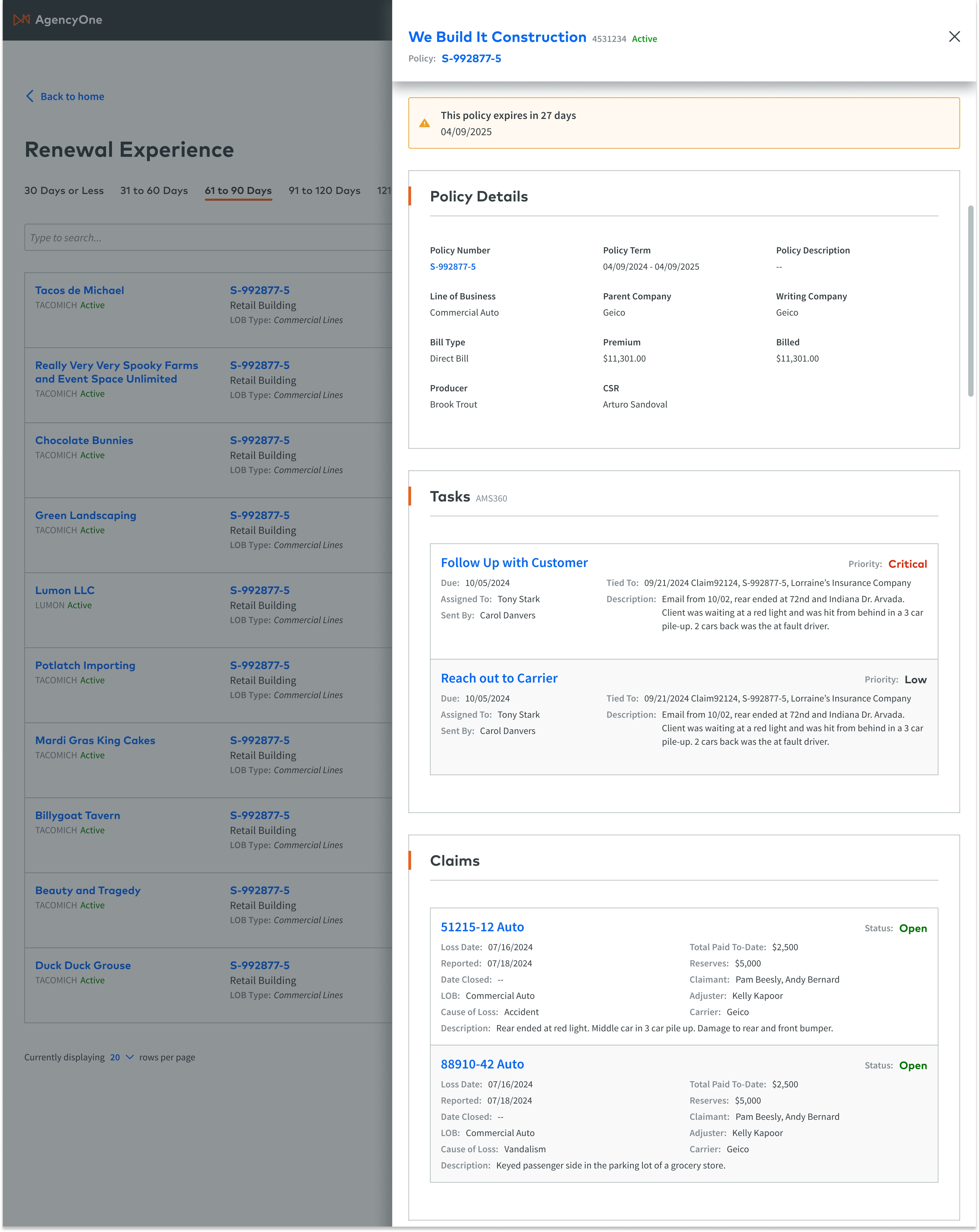
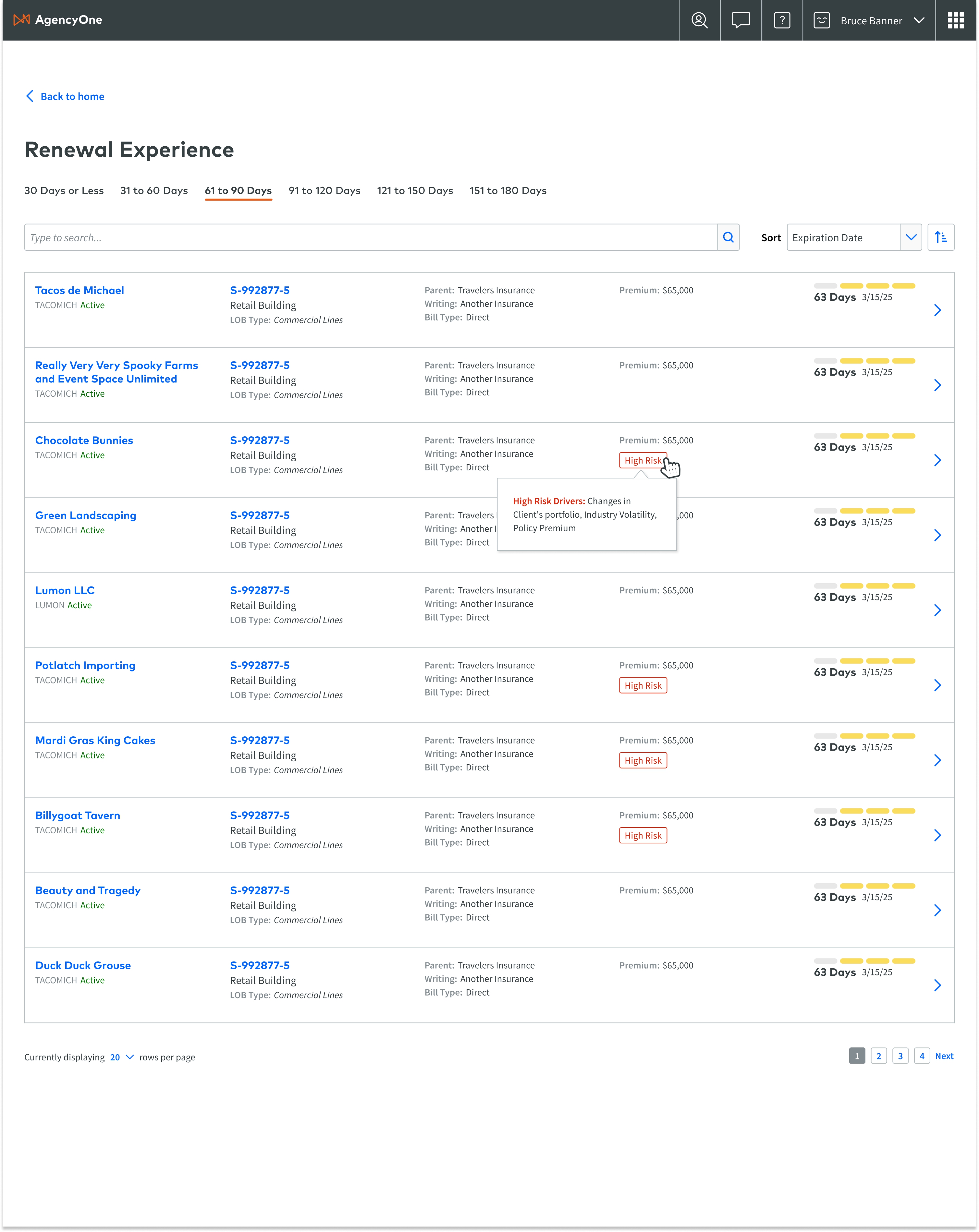
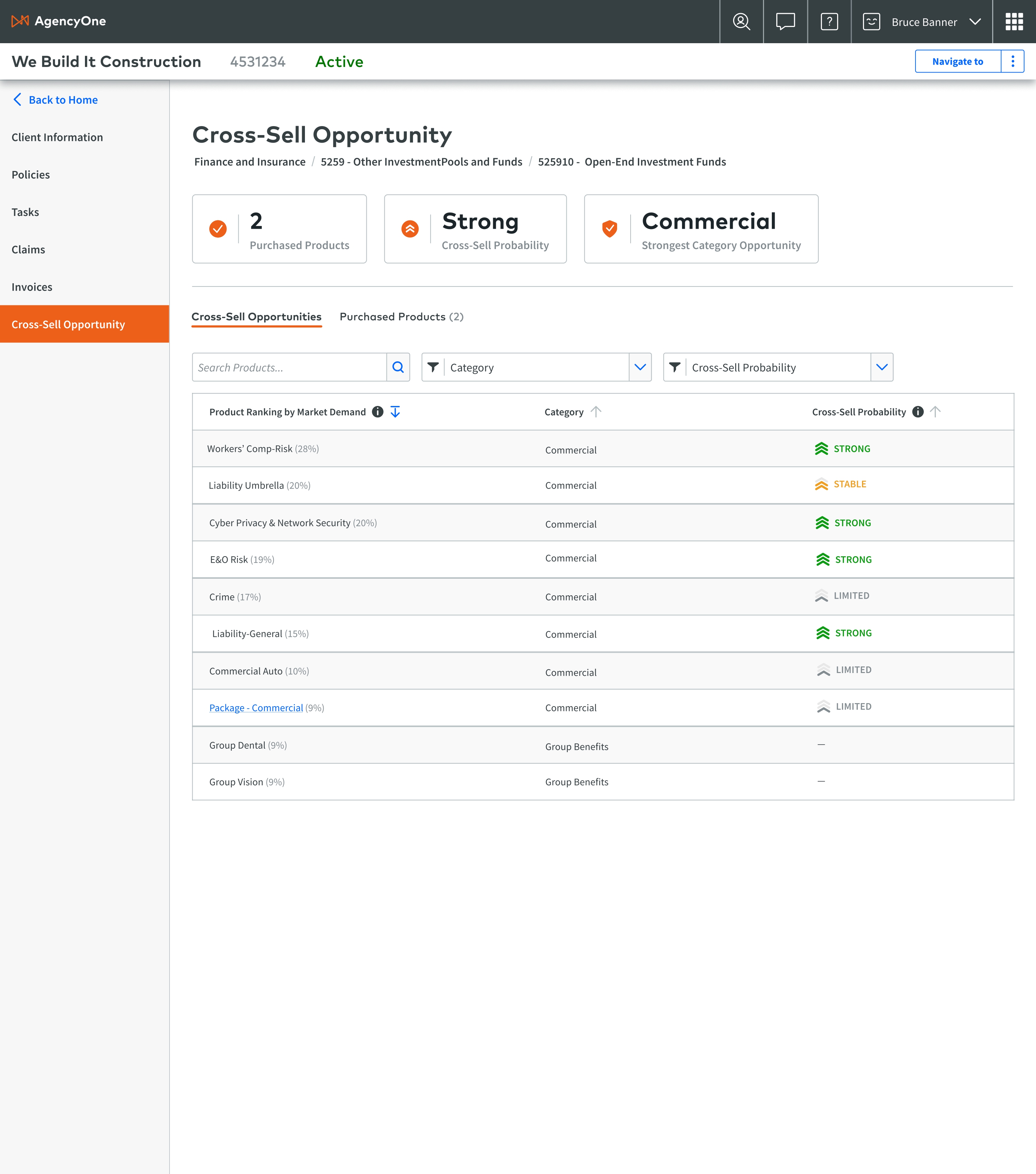
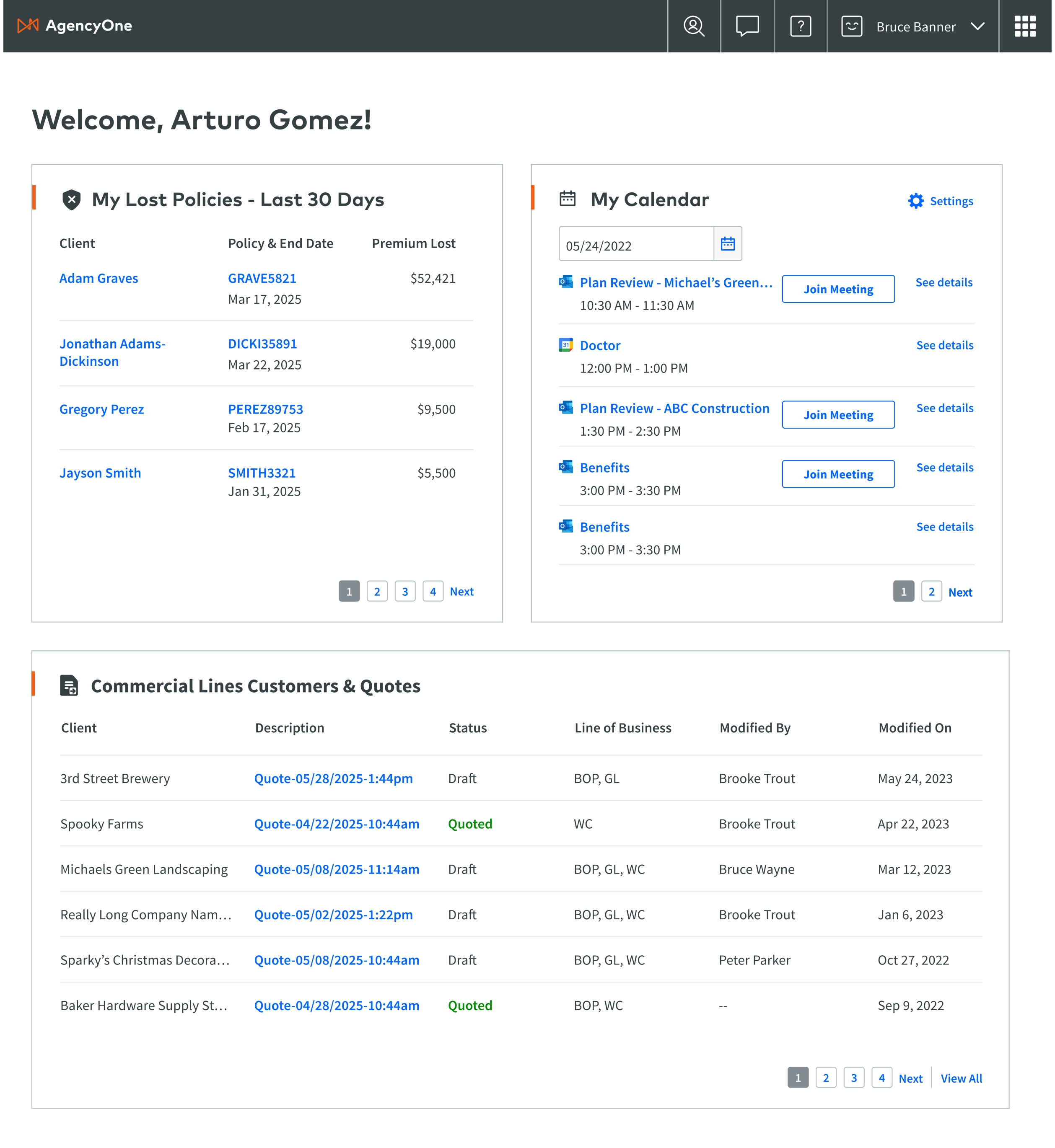
Sooner navigation and improved search features alone can liberate two weeks per worker per 12 months. “AgencyOne offers a 360-degree view of shopper info with customized dashboards and world navigation, making an agent’s work simpler on daily basis,” Thom says. “That type of unified expertise interprets into actual time financial savings and lets brokers spend extra time on enterprise development and shopper engagement.”
Open structure, long-term assist
Underpinning Vertafore’s know-how is an open-architecture technique constructed on APIs and microservices, in addition to its Orange Companion program.
This ecosystem allows businesses, MGAs, and provider companions to plug in best-in-class instruments, lengthen workflows, and preserve a seamless expertise throughout its suite and complementary applied sciences.
In 2020, Vertafore discovered a everlasting dwelling by its acquisition by Roper Applied sciences. That long-term backing permits Vertafore to reinvest almost 1 / 4 of its income in product improvement, UX/UI enhancements, and steady platform modernization.
Latest design updates emphasize:
-
inclusive ideas
-
enhancing accessibility
-
decreasing clicks
-
overcoming situational obstacles that sluggish brokers down
“Our aim is to simplify your complete insurance coverage lifecycle so prospects can concentrate on what issues most to their distinctive enterprise wants,” he provides. “We’re delivering instruments that work at present and evolve to satisfy tomorrow’s challenges.”
Vertafore will lengthen the Mission Impression strategy to new workflows and floor AI-driven suggestions throughout its platform. Its focus stays on uniting the distribution chain, empowering businesses, MGAs, and carriers with customer-centric options that drive actual enterprise outcomes.
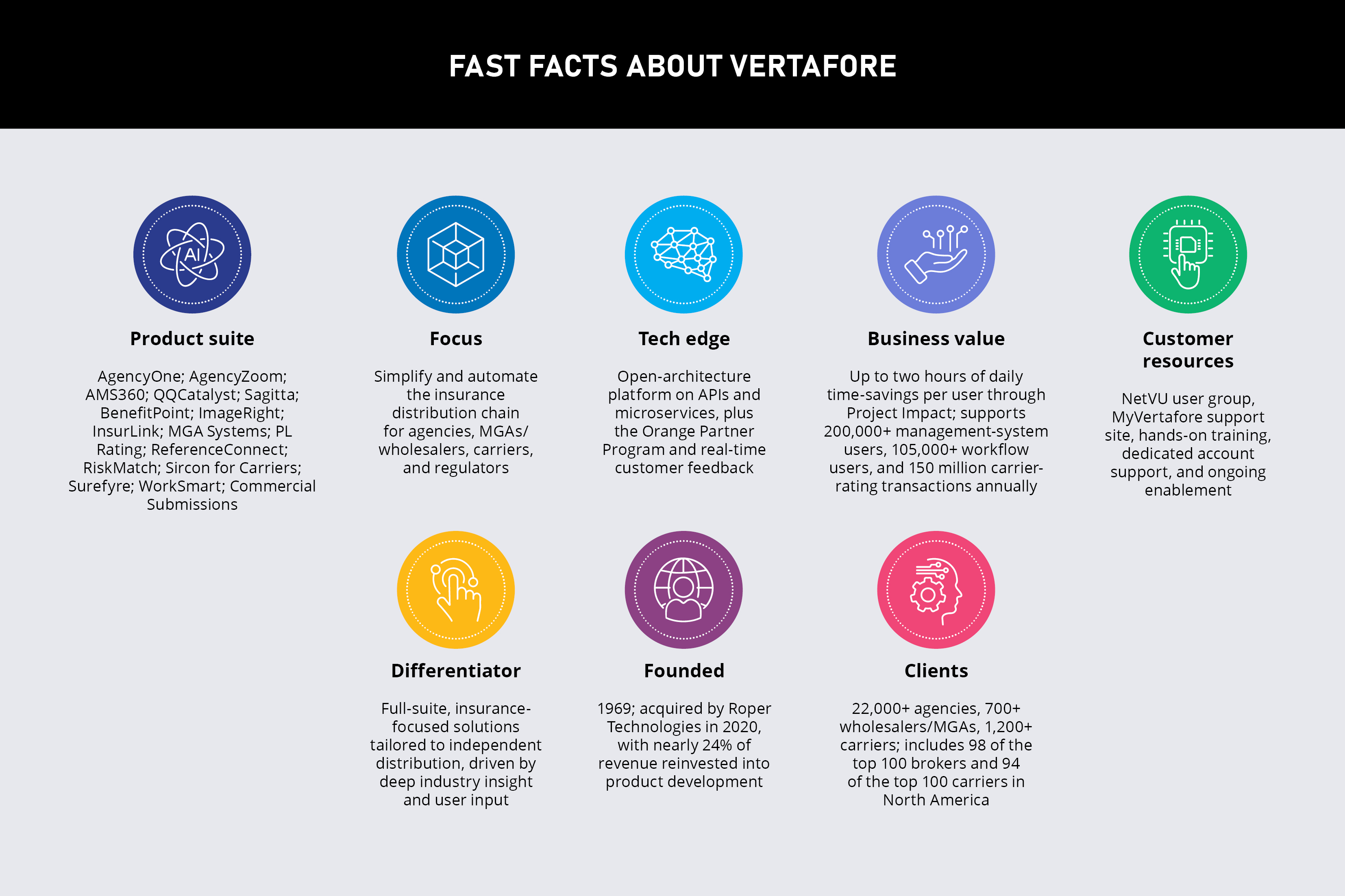
Redefining automation with influence, not overhead
In a market the place pace, accuracy, and expertise set the minimal bar for competitors, automation has change into greater than a cost-cutting device. TCG’s flagship platform, DocProStar, combines AI, legacy integration, and no-code course of design to ship pace with out including technical complexity.
“Initially, shoppers had been primarily centered on value financial savings by automating repetitive administrative duties equivalent to information extraction and electronic mail triage,” says managing director Frank Volckmar. “These early-stage implementations delivered a powerful return on funding, typically reaching payback in below 12 months.”
Growth now sees shoppers utilizing automation to boost each worker and buyer experiences. “Whereas value discount stays necessary, the main target has expanded to incorporate broader strategic objectives; particularly, enhancing worker and buyer experiences,” Volckmar says.
DocProStar stands out for its no-code, BPMN-based interface, which allows claims managers, underwriters, and operations employees to map, check, and refine workflows with out writing a single line of code.
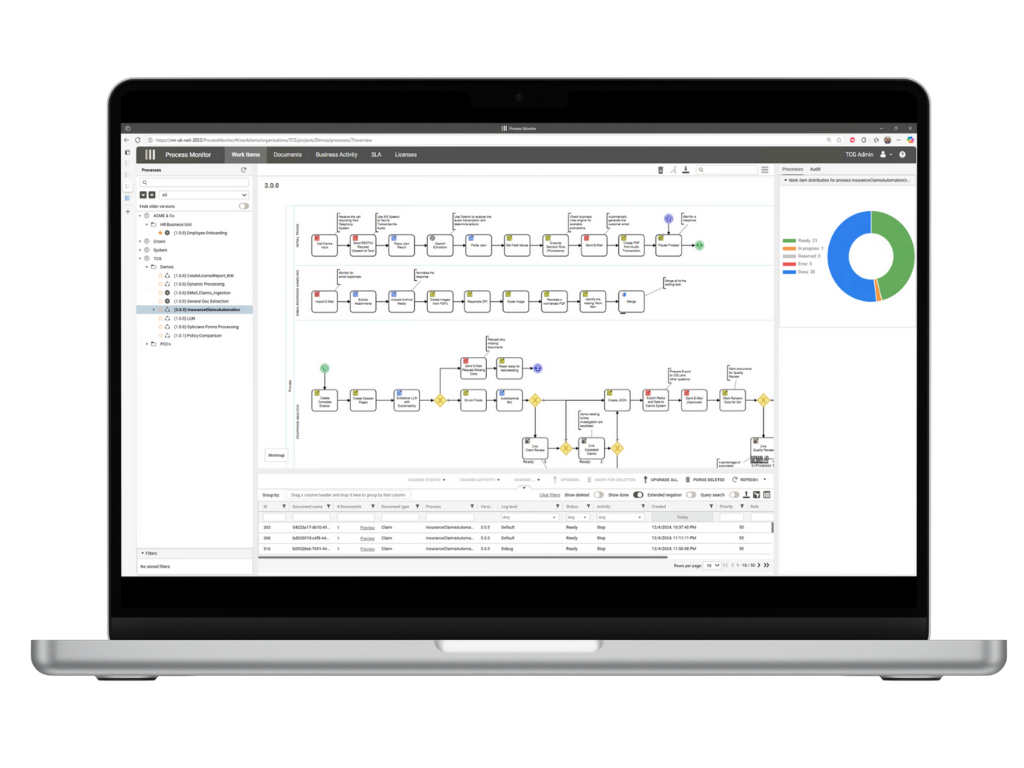
“This inclusive strategy accelerates automation rollouts whereas guaranteeing the folks closest to the enterprise challenges can actively contribute to course of innovation,” Volckmar says. “The result’s quicker time-to-value, broader alignment throughout groups, and extra resilient, business-driven automation initiatives.”
Connecting legacy techniques with out rework
TCG designed DocProStar to behave as an orchestration layer, connecting legacy platforms to fashionable AI instruments and third-party techniques. For a lot of insurers, this means to bridge outdated and new is essential.
For instance, one shopper now makes use of DocProStar to ingest claims paperwork, extract key information, classify inputs, and automate selections utilizing AI, all whereas syncing with its core insurance coverage platform for validation.
“In some implementations, shoppers additionally ‘scrape’ information from legacy platforms and merge it with AI outputs inside DocProStar, turning fragmented duties into measurable, end-to-end processes,” Volckmar provides.


“As insurers proceed their digital transformation, we see OCTO enjoying a pivotal position in unlocking new efficiencies and accelerating the sensible utility of AI”
Frank VolckmarTCG Course of
What many nonetheless miss about AI
Regardless of sturdy adoption, Volckmar states that many insurers nonetheless underestimate what it takes to get automation proper:
-
lack of standardization throughout groups or departments
-
mistrust in AI outputs on account of fears of hallucination or inaccuracy
-
weak analysis frameworks that fail to weigh privateness, safety, and efficiency
“With so many providers out there, it’s vitally necessary to work with specialised consultants who can align know-how with precise enterprise wants.”
TCG is targeted on increasing AI throughout high-volume use circumstances, equivalent to claims and underwriting, by OCTO, a brand new orchestration module embedded in DocProStar.
“Use circumstances already rising embrace the combination of AI into legacy functions, validation of incoming information in opposition to enterprise guidelines to boost information integrity, and AI-powered assist for information staff embedded straight of their workflows,” Volckmar says.
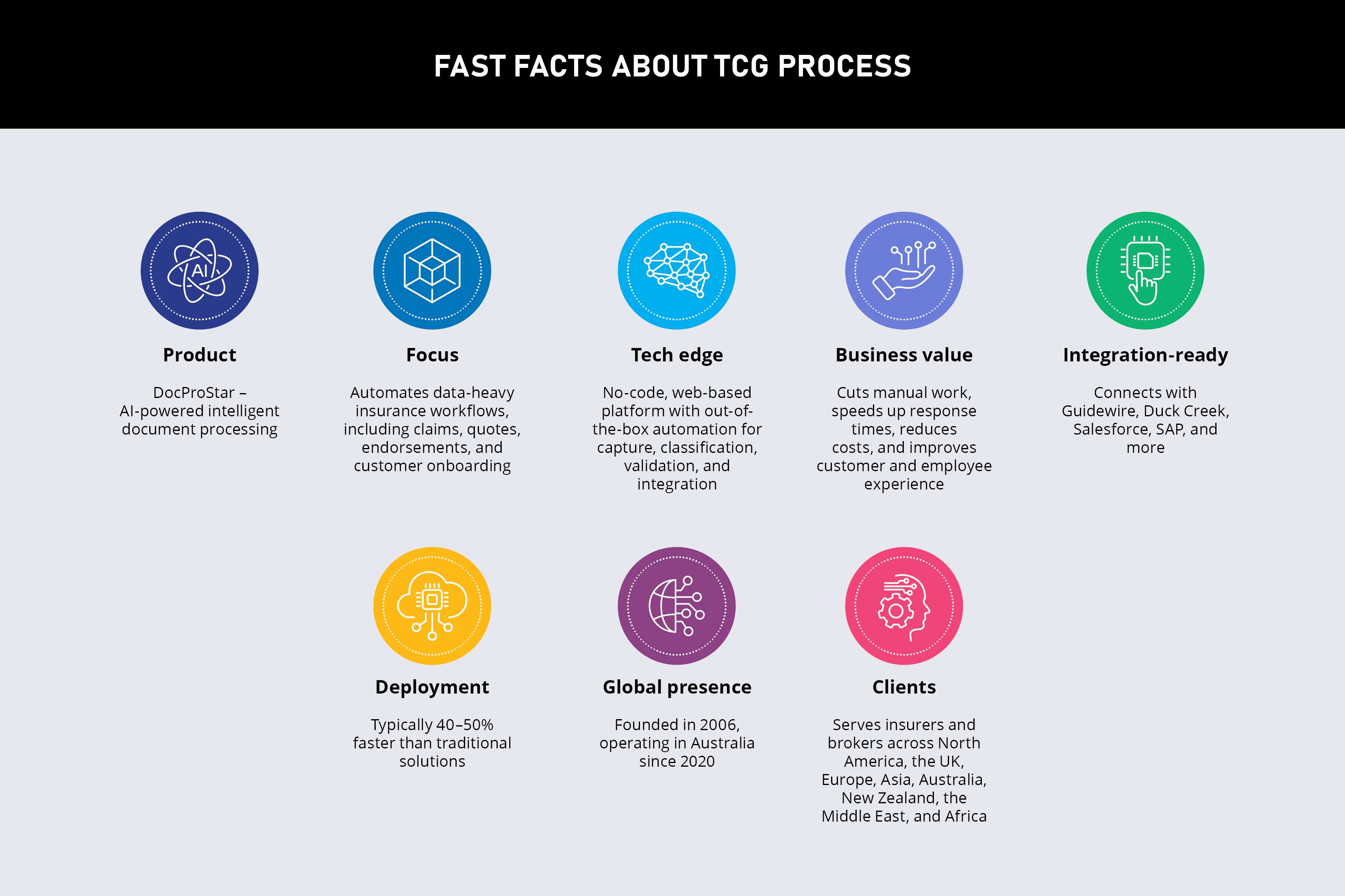
Sooner complete loss valuations with market-driven accuracy
In Australia’s motor insurance coverage market, complete loss valuation has lengthy been a sticking level. Clunky workflows, inconsistent information, and drawn-out disputes have pissed off assessors and claimants alike.
AutoGrab has stepped into that hole with its Pre-Accident Valuation (PAV) platform, which mixes real-time market information with human-guided decision-making to streamline the method and enhance belief.
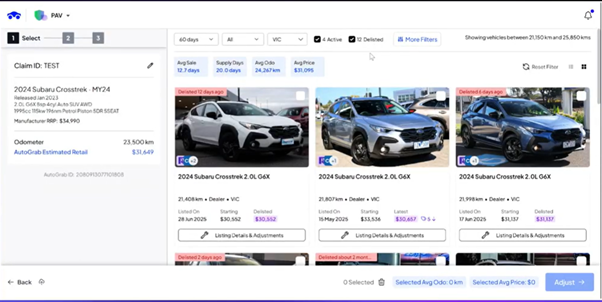
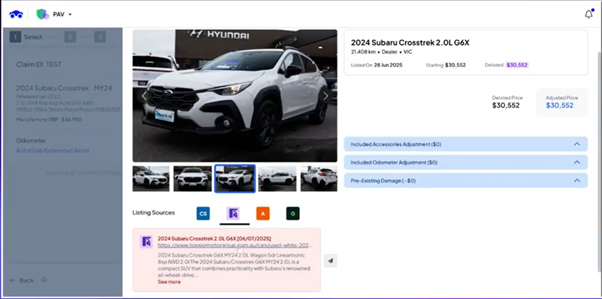
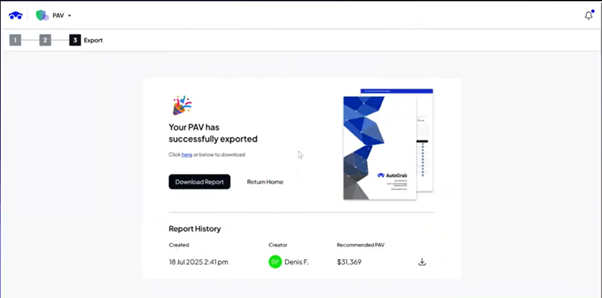
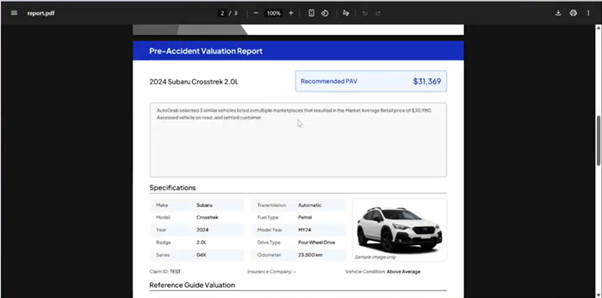
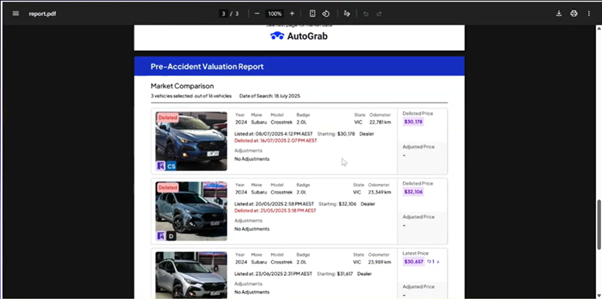
“It was fraught with errors,” remembers Denis Flora, nationwide buyer supervisor for insurance coverage. “In the event that they weren’t deciding on the suitable automobile, it meant they weren’t producing the suitable worth on a complete loss.”
Constructed for pace and proof
In the course of the peak of the pandemic, as automotive costs surged and provide chains crumbled, AutoGrab launched its resolution to scale back handbook steps and enhance consistency.
By automating the grunt work, matching automobile identification and outline, and drawing on a deep catalogue of marketed listings, the platform reduces the typical time per case to seven to 10 minutes, a 60 p.c time saving with improved accuracy.
“The ache was acute throughout COVID,” Flora says.
Customers are guided by an easy-to-navigate interface and obtain a clear, customer-ready PDF report.
“Our anecdotal suggestions is that 9 out of 10 prospects agree with the end result of the report as a result of they’ve obtained the proof there,” Flora provides.


“We provide the right mix of know-how help throughout the extremely customer-focused and personable technique of the insurance coverage motor claims worth chain”
Denis FloraAutoGrab
Settlement worth complaints stay among the many most frequent insurance coverage disputes in Australia, in accordance with AFCA. To assist transparency, AutoGrab’s experiences embrace comparable listings, worth historical past, and state-specific market dynamics.
“If a buyer is dissatisfied with a complete loss declare’s worth, the insurer can present the AutoGrab PAV PDF report to point out how the worth was calculated,” he explains.
Actual-time information that strikes with the market
AutoGrab’s proprietary catalogue covers 99.3 p.c of automobiles below 4.5 tons, relationship again to 1983. It’s up to date frequently by its world partnerships.
The protection is increasing quicker than that of different instruments available on the market, due to these partnerships and unique entry to new fashions, making it the quickest available on the market to develop.
Commercials are matched to {the catalogue} and monitored all through the gross sales cycle, together with pricing actions, days to promote, and provide and demand dynamics. This information is analyzed to supply an correct market-reflective worth, supported by precise listings and gross sales information.
Human perception nonetheless issues
Whereas the platform makes use of machine studying to counsel an estimated retail worth, human experience stays central to the method, particularly in insurance coverage.
“We current all the information, insights, and listings to the shopper, they usually make the decision on which automobiles to make use of within the valuation,” Flora explains. “Each automobile is exclusive. It could have totally different equipment, modifications, or pre-existing injury. That’s the place the human interplay is available in.”
What’s modified is the standard of data behind these selections. Along with presenting comparable listings, AutoGrab consists of state-based provide and demand stats, odometer averages, and nationwide pricing developments. Flora calls it a holistic image.
“That worth could also be totally different on the final day of the month in comparison with the primary day of the month as a result of listings could have modified,” he says. “We current all of that to our customers to make that decision.”
From motor claims to full cycle enlargement
Since its launch in 2020, AutoGrab now serves insurers and underwriting companions in Australia, New Zealand, the UK, and Asia. Whereas its basis lies in insurance coverage, the corporate is effectively established in different verticals, together with dealership platforms, fleet administration, finance, and authorities.
“Holistically, the automotive business is our oyster,” Flora says. “However we see actually good advantages for insurers, not solely to drive their claims efficiency and coverage portfolio efficiency higher, however to enhance their buyer engagement and transparency, which drives loyalty and retention.”
AutoGrab is now increasing deeper into the claims lifecycle, from lodgment and restore evaluation to underwriting and quote era.
Internationally, it already gives totally automated valuations for insurers. In Australia, the hybrid mannequin, combining machine intelligence with human discretion, stays the optimum match. However the know-how is designed to scale.
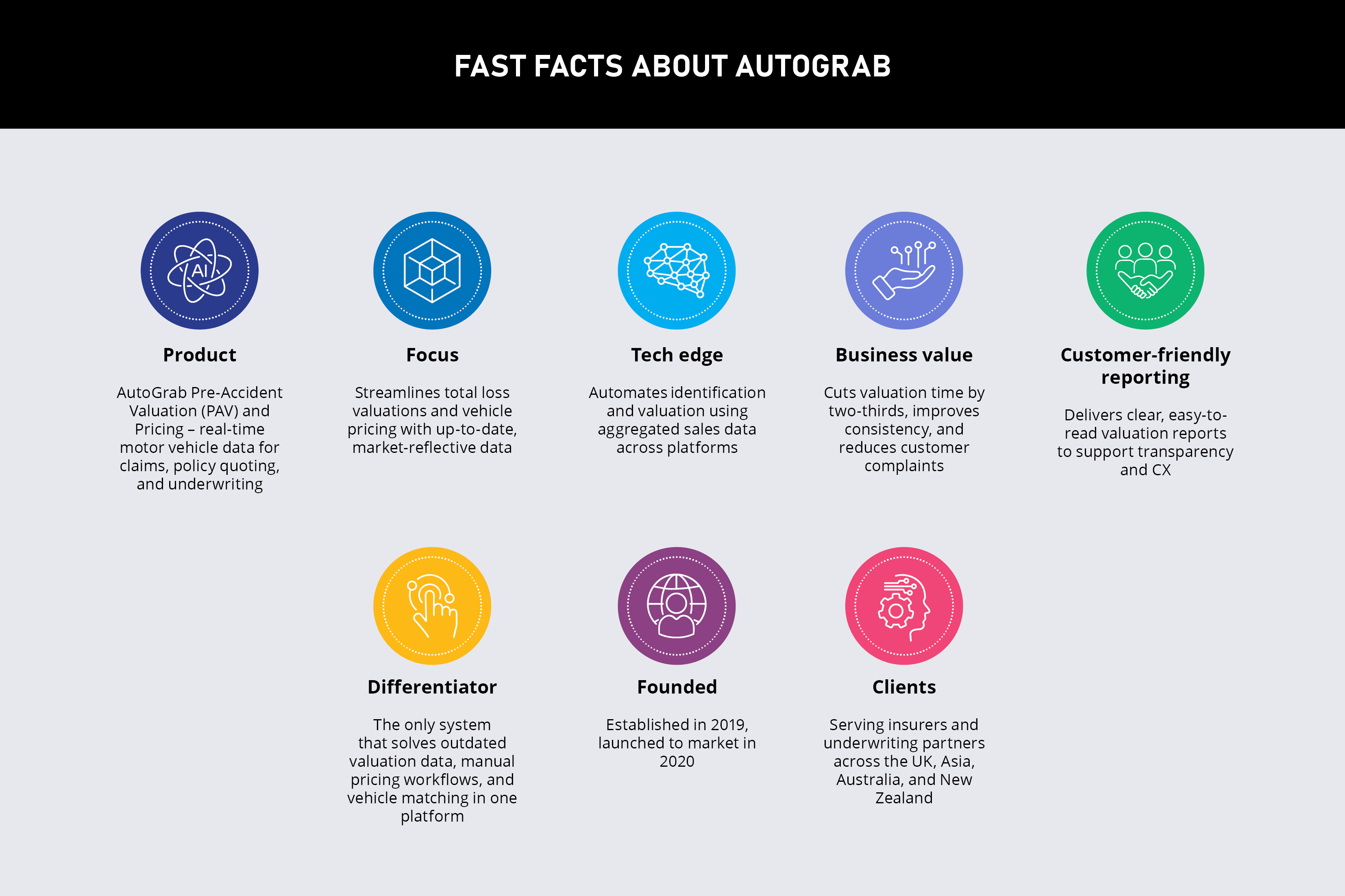
Insurtech is now not a sandbox for theories. AI could also be within the highlight, however insurers and brokers are centered on what works. They need instruments that ship outcomes. Tech that cuts the noise, fixes the complications, and helps groups carry out extra effectively.
IB’s 5-Star Expertise and Software program Suppliers 2025 have earned their status by remaining centered on execution. They’re not promoting software program; they’re fixing issues for brokers and insurers in demanding, complicated environments globally.
- AgencyBloc
- Alert Labs
- Utilized Programs
- Bentek
- Curium
- Decerto
- EcoClaim
- Folio.insure
- Foxquilt
- InsuredHQ
- Life Design Evaluation
- ProNavigator
- Quandri
- QuickFacts
- Quotey.io
- RedBook New Zealand
- SambaSafety
- TCG Course of
- Trufla Expertise


